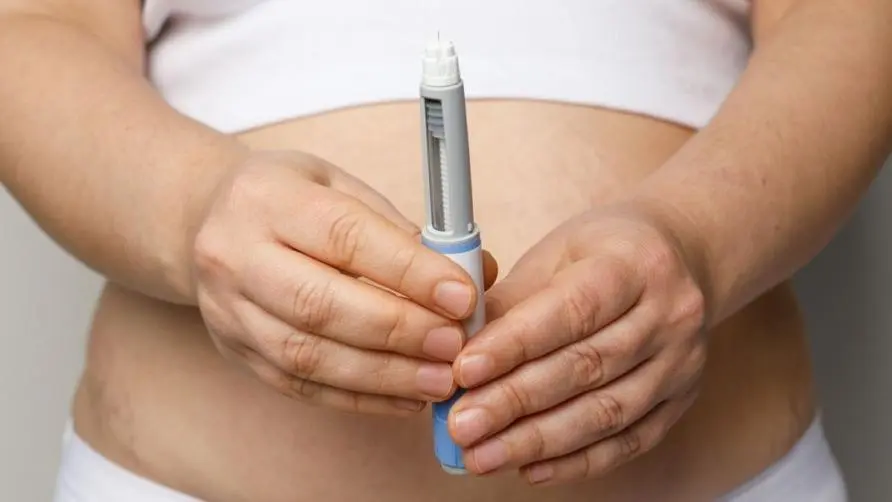Drinking "apple cider vinegar" can help you lose weight and lower cholesterol? "BMJ" research confirms: You can lose up to 7 kilograms in 12 weeks

In the early stage of weight loss, replacing sugary drinks with “fruit vinegar” may help increase the weight loss effect? A recent study published in the authoritative journal “British Medical Journal” (BMJ) reported that obese people who drank apple cider vinegar regularly before meals every day could lose up to about 8 kilograms of weight after 12 weeks; in addition, the blood sugar and triglycerides of the participants in the study Physiological values such as cholesterol and cholesterol also tend to decrease.
Drinking “apple cider vinegar” can help you lose weight and lower cholesterol? Research confirms: You can lose up to 7 kilograms in 12 weeks
The study was initiated by the University of the Holy Spirit in Kaslik, Lebanon. The research team recruited 120 Lebanese people. Most of the subjects were obese (BMI ranged from 27-34), had high eating frequency (more than 4 meals a day), had little habit of regular exercise, and experienced negative emotions or anxiety problems. All subjects do not have the habit of smoking or drinking, and a few subjects are currently controlling their diet under the supervision of doctors.
The research team divided the subjects into 4 groups, namely the experimental group who drank 5 ml (group 1), 10 ml (group 2), and 15 ml (group 3) of apple cider vinegar before meals, and the group who drank a placebo. Control group (group 4). The subjects were asked to drink apple cider vinegar before breakfast every day, and their blood sugar, triglyceride and cholesterol levels were measured at fixed times. After 12 weeks of close tracking, the research team came to the following results.
In terms of weight: the first to fourth groups lost an average of 5.1, 7.4, 7.0 and 0.3 kilograms respectively.
Body mass index: the average decrease in the first to fourth groups was approximately 1.8, 2.9, 2.8 and 0.1 kg/m2 respectively.
Waist circumference: decreased by approximately 2.9, 2.7, and 3.4 cm in the first to third groups respectively, and increased by approximately 0.2 cm in the fourth group.
Hip circumference: decreased by approximately 1.8, 2.0, and 2.2 cm in the first to third groups respectively, and increased by approximately 0.1 cm in the fourth group.
The body fat rate in: the first to third groups decreased by approximately 1.3%, 1.5%, and 1.9% respectively, while the fourth group increased by approximately 0.3%.
In addition to various values related to weight loss, the research team also looked at the subjects’ fasting blood sugar, total cholesterol and triglycerides. The changes in values are as follows.
Fasting blood sugar: the average decreases in the first to fourth groups were approximately 5.5, 8.8, 11.9 and 1.4 mg/dl respectively.
Triglyceride: the first to third groups decreased by approximately 7.0, 12.5, and 14.1 mg/dl respectively, while the fourth group increased by approximately 0.6 mg/dl.
Total cholesterol: decreased by approximately 6.0, 11.4, and 14.7 mg/dL in the first to third groups respectively, while in the fourth group, it increased by approximately 0.1 mg/dL.
Based on the above, it can be seen that the intervention of regularly drinking apple cider vinegar for 12 weeks not only helps to improve the obesity problem of the subjects, but also shows certain potential in helping to improve various physiological values related to obesity. More importantly, the subjects did not report any side effects during the trial, and it may have the opportunity to be used as a part of clinical obesity dietary treatment in the future.
Acetic acid in vinegar drinks is key to weight loss? Experts say drinking in moderation is expected to reap “these benefits”
Rony Abou-Khalil, the author of the study, pointed out that the main component of vinegar drinks is “acetic acid” (AcOH). Previous animal studies have confirmed that acetic acid has the effects of increasing energy consumption, improving insulin sensitivity, regulating appetite, and increasing satiety. And easily and quickly absorbed by the upper gastrointestinal tract. Abou-Khalil believes that acetic acid may affect “G protein-coupled receptor” (GPR) cell signaling in the body, thereby regulating insulin sensitivity in various parts of the body, including adipose tissue, skeletal muscle, liver, pancreatic islet cells, large intestine and small intestine.
Abou-Khalil explained that acetic acid has also been confirmed by animal experiments to help inhibit lipogenesis and reduce the expression of genes involved in “glycogenesis” (a biochemical reaction that mainly occurs in the liver to convert non-carbohydrates into glucose). It may have Helps improve glucose tolerance and reduces lipid accumulation in adipose tissue and liver in mice.
However, Abou-Khalil stressed that drinking too much vinegar still carries risks, such as erosion of tooth enamel. If it is not diluted with water, drinking it on an empty stomach is more likely to cause stomach discomfort, and in severe cases, even gastric ulcers. In addition, the number of samples in this study was insufficient, and the trial length was not long enough to prove a causal relationship between weight loss and drinking apple cider vinegar. Therefore, if you are in the weight loss stage, it is recommended to consult a doctor and nutritionist to discuss the daily drinking amount to avoid drinking too much at one time and causing physical discomfort.
Source:
Further reading:





